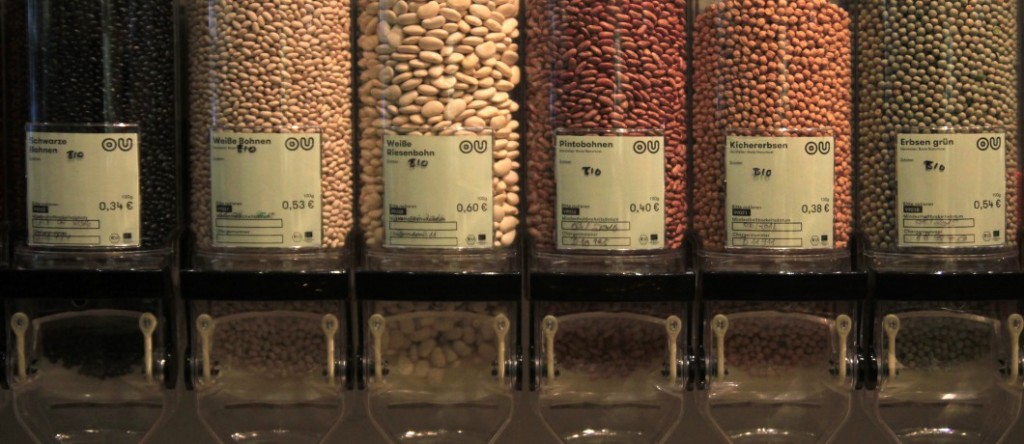[responsive] [/responsive]
[/responsive]
A new supermarket called Original Unverpackt (tr: Originally Unpacked) recently opened in Berlin after raising more than 100,000 euros via crowd funding. The concept is based on selling foods without packages – consumers bring their own containers and buy just the amount they need – and is designed to eliminate the waste that often comes with packaged foods.
“The idea was born when the two founders Sara Wolf and Milena Glimbovski realized just how much packaging they found in front of them from making a simple dinner,” according to an article in the Drupa News Room.
“Items offered are mostly available as organic but also as conventional. Products include basic food staples such as rice, cereal and pasta, fresh vegetables and fruits, as well as liquids such as oil or shampoo,” the article continues. “While all the products mentioned come without packaging, others do. In this case, the package is reusable or recycled. Homemade marmelade e.g. is sold in glasses, toothbrushes come in recycled paper.”
We agree that there are some advantages to this idea, mainly less waste and the ability to buy just the right amount for your pantry. Still, without the packaging consumers are in the dark as to nutritional and ingredient information (especially important for people with dietary restrictions or allergies), expiration dates and preparation or usage instructions.
And then there are the hygiene issues, which can be especially challenging in cold and flu season. Packaging provides much more than simply the container in which to carry one’s purchase: It offers a sanitary barrier between the consumer and the world that product must travel through.
Given that this concept is already offered via the bulk sections of many grocery stories in the U.S., we don’t see a huge clamor for more of its kind. The market, as always, will tell.
“In the end, it will have to be seen how the customers will react to the choice of picking between packed and unpacked products, and whether they will see extra value in it or not,” the article concludes.
